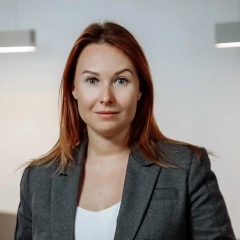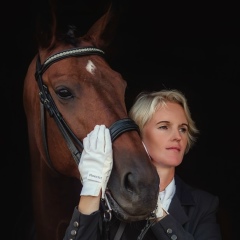Путешествие по Восточной Европе, занявшее у меня около недели, довольно неожиданно стало чуть ли не самой запоминающейся частью поездки. Мы, конечно, обычно с пренебрежением относимся к этим странам - лучше, мол, на море на две недели, чем в непонятную Словекию. Не надо так. Я сам для себя внезапно в ходе поездки очень отчетливо ощутил, что исторически славянские страны для Европы - это не какие-то там окраины, а это, блин, добрая и неотъемлемая её половина. Ну то есть вся Европа в первом приближении по-моему и поделена примерно поровну между условными германцами, римлянами и славянами.
За исключением совсем уж туристических мест, сюда бесполезно ехать со знанием английского - вам гораздо проще будет объясниться с местными, перебирая по очереди всевозможные русские синонимы. Почему-то у нас об этом не очень принято вспоминать, но ведь буквально каких-то полторы тысячи лет назад все мы, как и, например, бывшие провинции Римской Империи, говорили примерно на одном праславянском языке и вообще особой разницы, наверное, друг между другом не видели. Да мы и сейчас, по сути, все ещё очень похожи, хоть жизнь тут и течет значительно спокойнее и размеренее, чем у нас.
А вот вам случайный интересный факт - более 50% выпускников люблянских (Любляна - столица Словении) школ поступают в медицинские университеты, потому что профессия доктора считается одной из самых престижных и высокооплачиваемых в стране. Откуда ещё можно такие невероятные для нашего восприятия вещи узнавать, как не из непосредственного общения с местными? Ну разве что из российских СМИ, да ("все они уже давно свалили чистить унитазы в Германию").
За исключением совсем уж туристических мест, сюда бесполезно ехать со знанием английского - вам гораздо проще будет объясниться с местными, перебирая по очереди всевозможные русские синонимы. Почему-то у нас об этом не очень принято вспоминать, но ведь буквально каких-то полторы тысячи лет назад все мы, как и, например, бывшие провинции Римской Империи, говорили примерно на одном праславянском языке и вообще особой разницы, наверное, друг между другом не видели. Да мы и сейчас, по сути, все ещё очень похожи, хоть жизнь тут и течет значительно спокойнее и размеренее, чем у нас.
А вот вам случайный интересный факт - более 50% выпускников люблянских (Любляна - столица Словении) школ поступают в медицинские университеты, потому что профессия доктора считается одной из самых престижных и высокооплачиваемых в стране. Откуда ещё можно такие невероятные для нашего восприятия вещи узнавать, как не из непосредственного общения с местными? Ну разве что из российских СМИ, да ("все они уже давно свалили чистить унитазы в Германию").
The trip to Eastern Europe, which took me about a week, quite unexpectedly became almost the most memorable part of the trip. Of course, we usually treat these countries with disdain - it’s better, they say, at sea for two weeks than in incomprehensible Slovekia. Do not do like this. For myself, all of a sudden, during the trip, I very clearly felt that historically Slavic countries for Europe are not some outskirts, but this, damn it, is a kind and integral half of it. Well, that is, all of Europe, in a first approximation, in my opinion, is divided approximately equally between the conditional Germans, Romans and Slavs.
Except for very touristy places, it is useless to go here with knowledge of English - it will be much easier for you to talk to the locals, going through all kinds of Russian synonyms in turn. For some reason, it is not very customary for us to remember this, but after all, literally some fifteen hundred years ago, we all, like, for example, the former provinces of the Roman Empire, spoke approximately the same Proto-Slavic language and, in general, there was a special difference, probably, between have not seen a friend. Yes, even now, in fact, we are still very similar, although life here flows much calmer and more measured than ours.
And here is a random interesting fact for you - more than 50% of graduates from Ljubljana (Ljubljana is the capital of Slovenia) schools go to medical universities, because the profession of a doctor is considered one of the most prestigious and highly paid in the country. Where else can we learn such incredible things for our perception, if not from direct communication with the locals? Well, perhaps from the Russian media, yes ("they all piled to clean the toilets in Germany a long time ago").
Except for very touristy places, it is useless to go here with knowledge of English - it will be much easier for you to talk to the locals, going through all kinds of Russian synonyms in turn. For some reason, it is not very customary for us to remember this, but after all, literally some fifteen hundred years ago, we all, like, for example, the former provinces of the Roman Empire, spoke approximately the same Proto-Slavic language and, in general, there was a special difference, probably, between have not seen a friend. Yes, even now, in fact, we are still very similar, although life here flows much calmer and more measured than ours.
And here is a random interesting fact for you - more than 50% of graduates from Ljubljana (Ljubljana is the capital of Slovenia) schools go to medical universities, because the profession of a doctor is considered one of the most prestigious and highly paid in the country. Where else can we learn such incredible things for our perception, if not from direct communication with the locals? Well, perhaps from the Russian media, yes ("they all piled to clean the toilets in Germany a long time ago").










У записи 10 лайков,
1 репостов.
1 репостов.
Эту запись оставил(а) на своей стене Алексей Лукашов




























